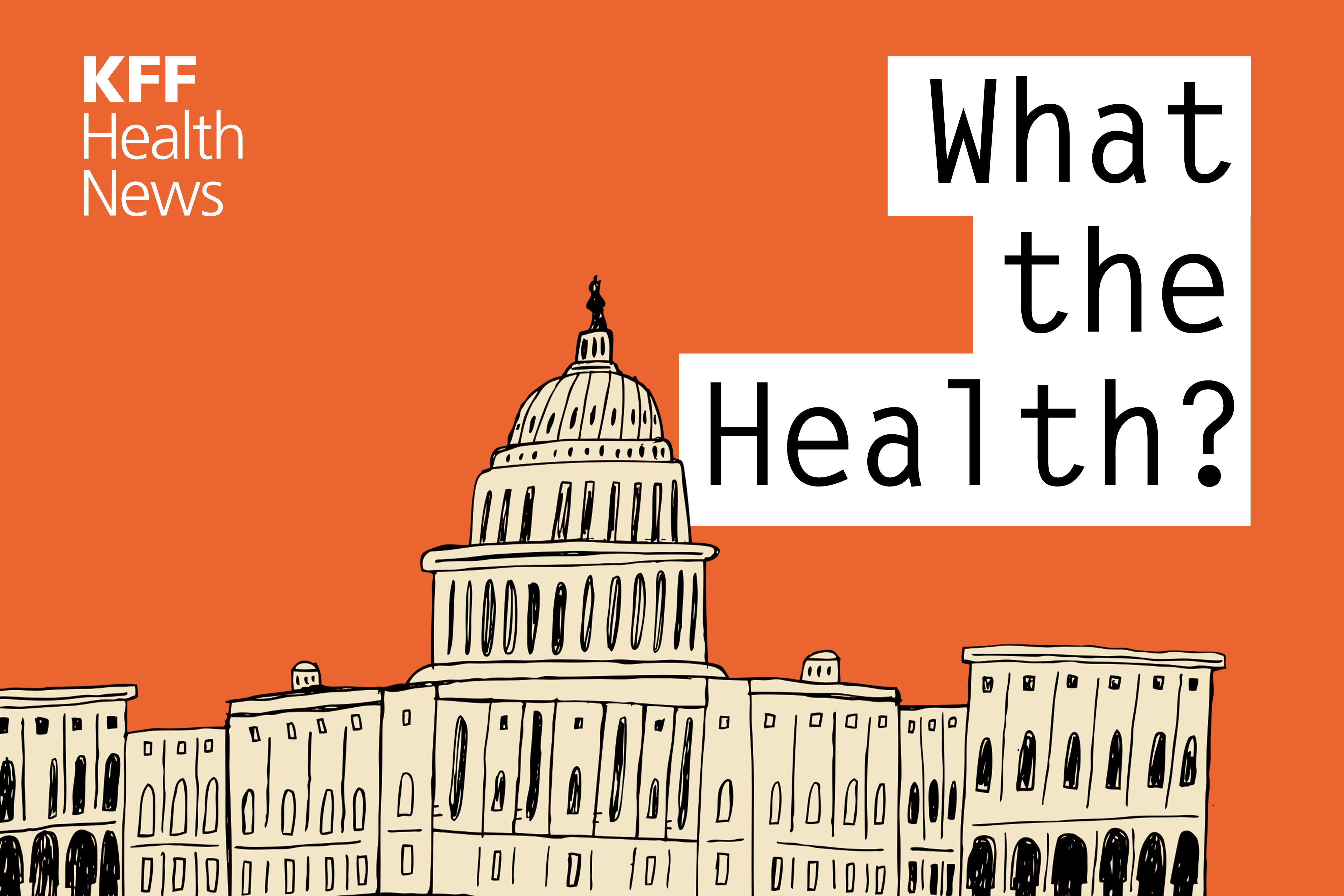The Host
How should journalists cover political candidates who make false claims about the safety and effectiveness of vaccines? That question will need to be answered now that noted anti-vaccine activist Robert F. Kennedy Jr. has officially entered the 2024 presidential race.
Meanwhile, South Carolina has become one of the last states in the South to pass an abortion ban, making the procedure all but impossible to obtain for women across a broad swath of the country.
This week’s panelists are Julie Rovner of KFF Health News, Alice Miranda Ollstein of Politico, Rachel Cohrs of Stat, and Sarah Karlin-Smith of the Pink Sheet.
Among the takeaways from this week’s episode:
Republican lawmakers and President Joe Biden continue to bargain over a deal to avert a debt ceiling collapse. Unspent pandemic funding is on the negotiating table, as the White House pushes to protect money for vaccine development — though the administration has drawn criticism for a lack of transparency over what would be included in a clawback of unspent dollars.
In abortion news, South Carolina is the latest state to vote to restrict access to abortion, passing legislation this week that would ban abortion after six weeks of pregnancy — shortly after pregnant people miss their first period. And Texas is seeing more legal challenges to the state law’s exceptions to protect a mother’s life, as cases increasingly show that many doctors are erring on the side of not providing care to avoid criminal and professional liability.
Congress is scrutinizing the role of group purchasing organizations in drug pricing as more is revealed about how pharmacy benefit managers negotiate discounts. So-called GPOs offer health care organizations, like hospitals, the ability to work together to leverage market power and negotiate better deals from suppliers.
Lawmakers are also exploring changes to the way Medicare pays for the same care performed in a doctor’s office versus a hospital setting. Currently, providers can charge more in a hospital setting, but some members of Congress want to end that discrepancy — and potentially save the government billions.
And our panel of health journalists discusses an importan …
Article Attribution | Read More at Article Source
The Host
How should journalists cover political candidates who make false claims about the safety and effectiveness of vaccines? That question will need to be answered now that noted anti-vaccine activist Robert F. Kennedy Jr. has officially entered the 2024 presidential race.
Meanwhile, South Carolina has become one of the last states in the South to pass an abortion ban, making the procedure all but impossible to obtain for women across a broad swath of the country.
This week’s panelists are Julie Rovner of KFF Health News, Alice Miranda Ollstein of Politico, Rachel Cohrs of Stat, and Sarah Karlin-Smith of the Pink Sheet.
Among the takeaways from this week’s episode:
Republican lawmakers and President Joe Biden continue to bargain over a deal to avert a debt ceiling collapse. Unspent pandemic funding is on the negotiating table, as the White House pushes to protect money for vaccine development — though the administration has drawn criticism for a lack of transparency over what would be included in a clawback of unspent dollars.
In abortion news, South Carolina is the latest state to vote to restrict access to abortion, passing legislation this week that would ban abortion after six weeks of pregnancy — shortly after pregnant people miss their first period. And Texas is seeing more legal challenges to the state law’s exceptions to protect a mother’s life, as cases increasingly show that many doctors are erring on the side of not providing care to avoid criminal and professional liability.
Congress is scrutinizing the role of group purchasing organizations in drug pricing as more is revealed about how pharmacy benefit managers negotiate discounts. So-called GPOs offer health care organizations, like hospitals, the ability to work together to leverage market power and negotiate better deals from suppliers.
Lawmakers are also exploring changes to the way Medicare pays for the same care performed in a doctor’s office versus a hospital setting. Currently, providers can charge more in a hospital setting, but some members of Congress want to end that discrepancy — and potentially save the government billions.
And our panel of health journalists discusses an importan …nnDiscussion:nn” ai_name=”RocketNews AI: ” start_sentence=”Can I tell you more about this article?” text_input_placeholder=”Type ‘Yes'”]

